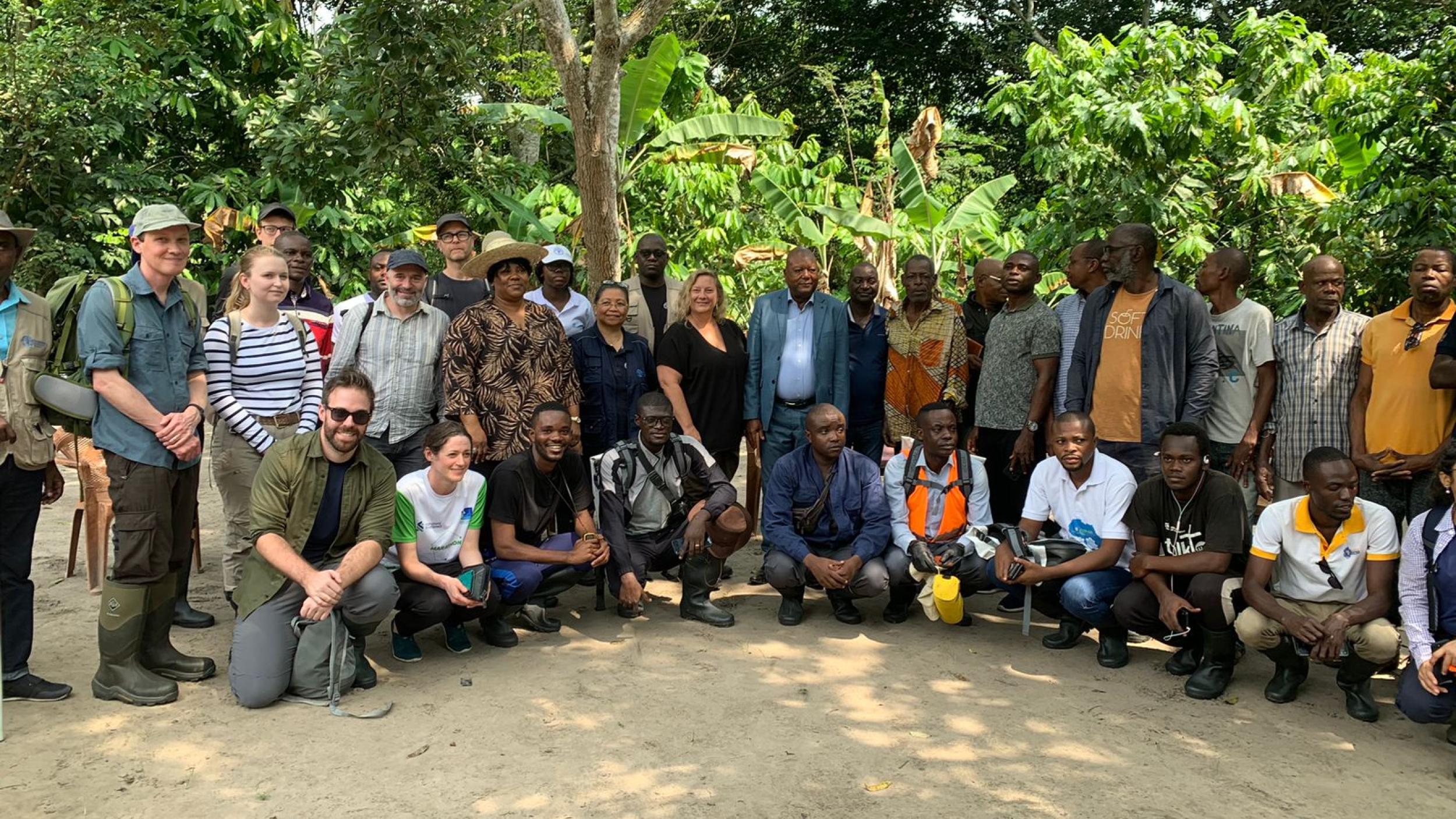
Congo Peatlands IKI Project mission to Congo launches a peatlands data campaign and research capacity building
From 22 January to 5 March 2024, partners in the project “Securing crucial biodiversity, carbon and water reserves in peatlands of the Congo Basin by enabling evidence-based decision-making and good governance” (or “Congo Basin Peatlands project”) came together in the Republic of Congo (RoC) to launch the peatlands data collection and capacity-building campaign of Congo Basin researchers while strengthening on-the-ground cooperation for peatlands in the region.
The project – led by the United Nations Environment Programme (UNEP) with the support of the Food Agriculture Organization (FAO) – contributes to a biodiversity-friendly development pathway through effective integrated land-use plans, improved sustainable livelihood approaches, capacity building and data collection for peatlands and water monitoring. The project is supported by the German Federal Ministry for the Environment, Nature Conservation, Nuclear Safety and Consumer Protection International Climate Initiative (BMUV) through the International Climate Initiative (IKI) based on a decision of the German Bundestag.
The three-fold objective of the mission was to launch joint UNEP-CongoPeat field campaigns in the RoC; to train students from the project's countries, i.e. the RoC and the Democratic Republic of Congo (DRC); and to collect joint data on these peatlands with a view to developing an updated and high-resolution map to support decision-making.
In the first segment of the mission, representatives from UNEP and FAO as well as the CongoPeat Research project team, funded by UNEP through the IKI, the UK governments’ Natural Environment Research Council and the Grantham Foundation, met with governmental, diplomatic and academic partners in Brazzaville to continue to exchange experience and align efforts towards the protection of these important ecosystems.
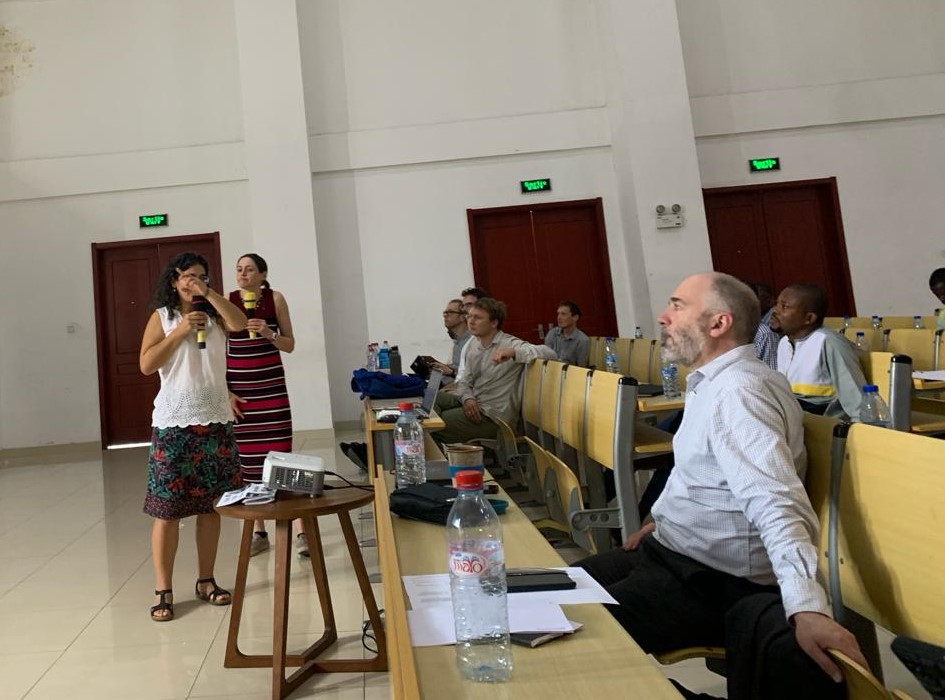
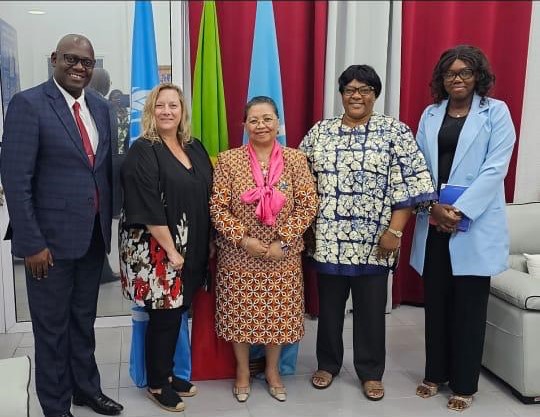
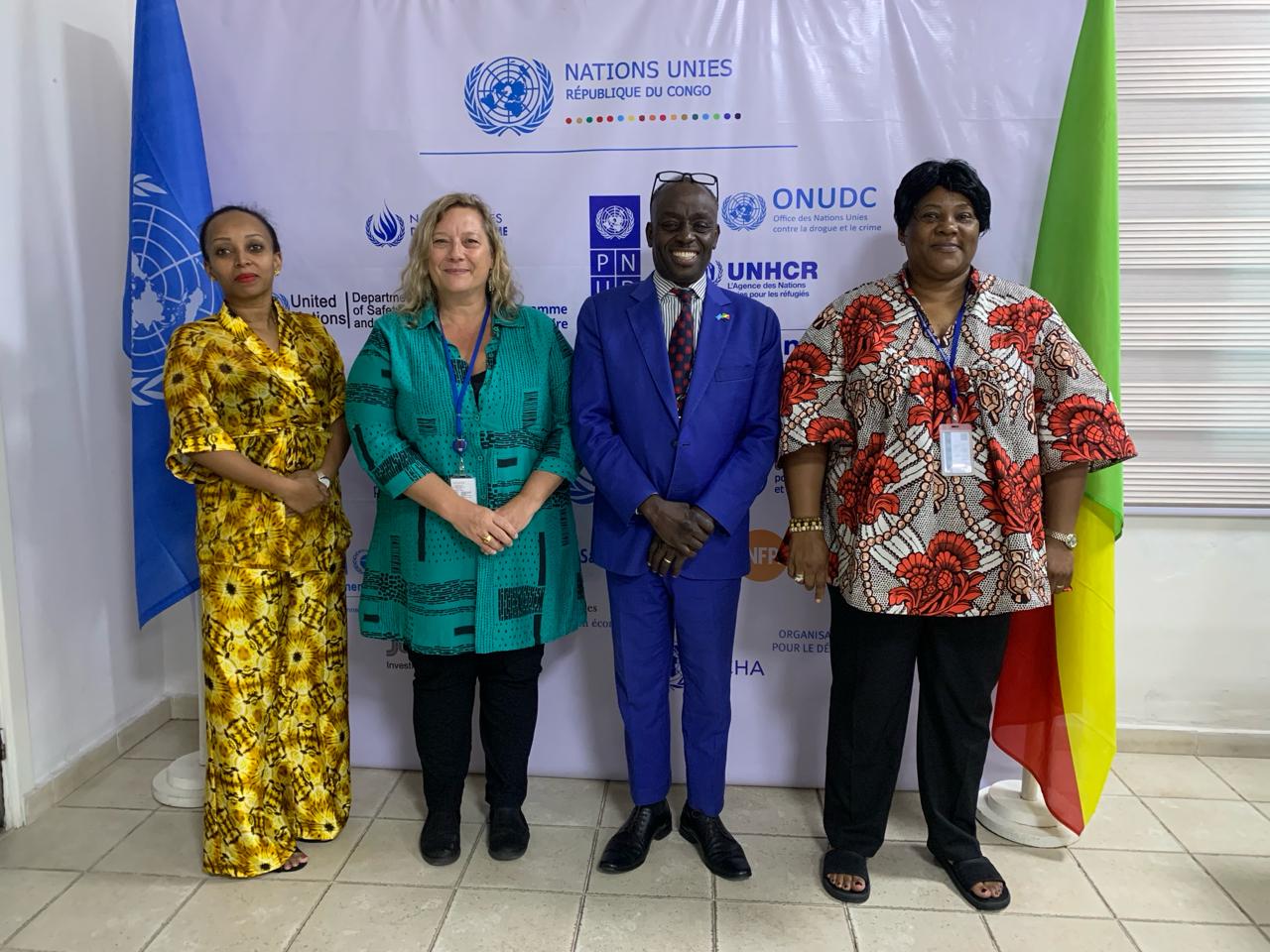
The second part consisted of a field mission to the Owando peatlands, co-led by the government, UNEP and researchers from Marien N’gouabi University, the University of Kisangani and the University of Leeds along with the FAO team led by the Representative at the beginning of the mission. During this segment, the peatlands experts kicked off the training for students from the Congo and the DRC. The training will enable a new generation of researchers to collect accurate and reliable peatlands data while also taking extensive new measurements that will contribute to producing an improved map of the cuvette central Congo peatlands. “We particularly appreciated the real-life situations, which helped us to acquire both technical and scientific expertise in data collection and team management in the field,” underlined the participating students from the University of Marien N’gouabi (RoC), the University of Kinshasa and the University of Kisangani (both DRC). “We're convinced that the new skills acquired during this training will be a valuable addition to our scientific career, enabling us to continue with future field data collection campaigns, and make an effective contribution to improving knowledge of the Congo Basin’s peatlands, long virtually unexplored.”
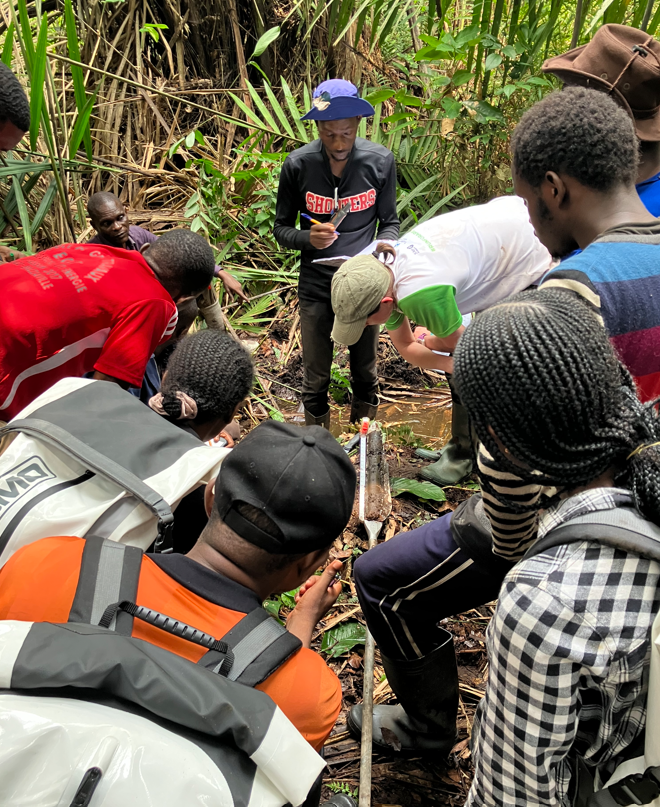
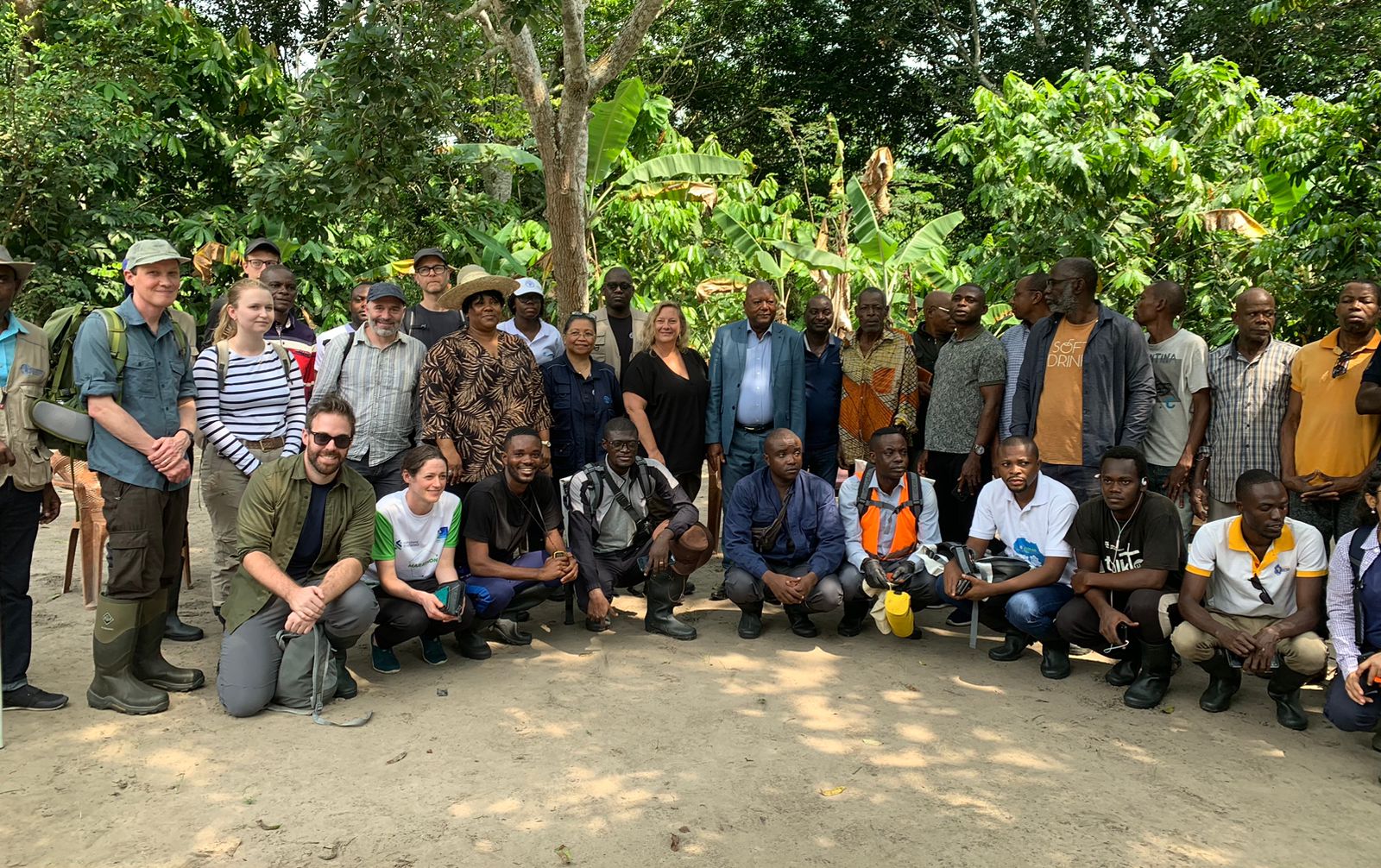
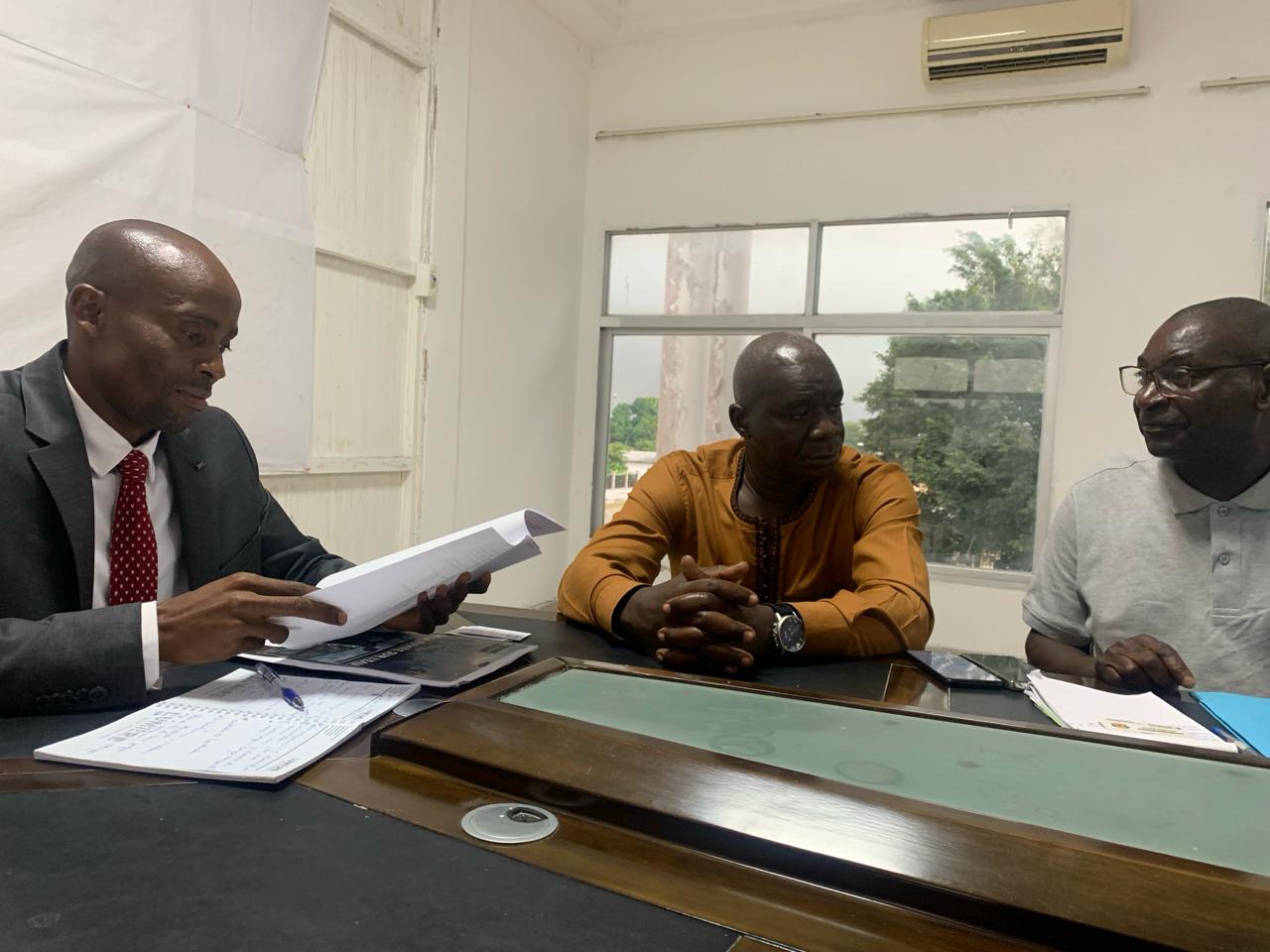
Peatlands are currently high on the region’s policy agenda. Most recently reinforced in the Declaration of the 2nd Summit of the three Basins signed in Brazzaville (RoC) on 28 October 2023, where the heads of state and government of the states of the three basins of the Amazon, Congo, and Borneo Mekong Southeast Asia acknowledged the special status and need for protection of the biodiversity of these ecosystems and tropical forests. And during the 111th meeting of the Council of Ministers of the DRC's government (Kinshasa, 1 September 2023), the DRC’s President Félix-Antoine Tshisekedi Tshilombo had declared again that peatlands must be given special status as a strict conservation zone.
In 2017, research by the CongoPeat Research project team revealed that the world's largest tropical peatland is located in the geographical heart of Africa. After building up for over 20,000 years, today the peat in the central Congo peatlands stores 29 billion tonnes of carbon. As outlined in the Global Peatlands Assessment, the RoC and DRC together account for the majority of peatland extent in the African continent. Despite the recent mapping of peatlands in the Congo Basin which are currently healthy and intact (Dargie et al. 2017; Crezee et al. 2022), many peatlands across Africa are being destroyed and degraded at an alarming rate, creating a pressing need for action to restore, conserve and sustainably manage these crucial habitats.
Dr. Yannick Ariane Rasoarimanana, FAO Representative in the Republic of Congo, said: “In the Congo Basin, the work of the Congo Peatland Research Team has confirmed the great potential and existence of a vast area of peatlands between the two Congos, but also in most of the countries of the Congo Basin. These peatlands store large quantities of carbon which absolutely must be kept in the ground and not released into the atmosphere, in order to avoid transforming them into a major source of greenhouse gases. Keeping peatlands intact is one of the surest ways to abate climate change.”
Getting to know exactly where the central Congo Basin peatlands are will allow the governments to access the science needed to advance their commitments to the Brazzaville Declaration and the implementation of the UNEA 4/16 Resolution on the Conservation and Sustainable Development of Peatlands. Knowing and understanding the relationship between these precious places and the people living in and around these peatlands will also help decision-makers advance their work toward sustainable development and other global environmental goals.
Dianna Kopansky, UNEP technical lead, said: “It is wonderful to be able to get back in the field again, critical data gathering, building meaningful relationships with welcoming communities, local and national government focal points, and witnessing the next generation of peatlands scientists being trained and emerging from the DRC and the Congo is absolutely inspiring!” Professor Simon Lewis from Leeds University underscored the value of the new data gathered on this mission: “The new field research confirmed that there is peat near the village of Bokouéle, which is the most southerly peatland in a large basin in the Republic of Congo. It’s exciting, as the location is quite accessible, but is dominated by palm-rich peat swamp forest, which is usually much harder to access. This is good as the trainees could see both of the main types of vegetation in the peatlands.”
The IKI project mission provided an opportunity for South-South and triangular knowledge exchange among experts working in the peatlands of the Congo basin (Prof. Simon Lewis, Dr. Greta Dargie, Dr. Corneille Ewango, Prof. Ifo Suspense, Dr. Ian Lawson and Prof. Richard Betts) and the Amazon basin (Dr. Euridice Honorio). “This is the first time that I have visited the peatlands of the Congo basin, and it was astonishing to observe many similarities in the ecosystem types and uses of the resources by communities compared to peatlands that I study in the Peruvian Amazon,” Dr. Euridice Honorio from the University of St Andrews said. And Prof. Ifo Suspense from Marien N’gouabi University underlined the importance of knowledge transfer within the scientific community: “I was very proud to see students from Congo Basin’s universities interacting with internationally renowned researchers, strengthening their knowledge on tropical peatlands of the Congo Basin and Amazonia during the conference organised at Marien N'gouabi University and on data collection methods in peatland ecosystems during the field mission. This is a good example of knowledge transfer that should be duplicated throughout the Congo Basin.”